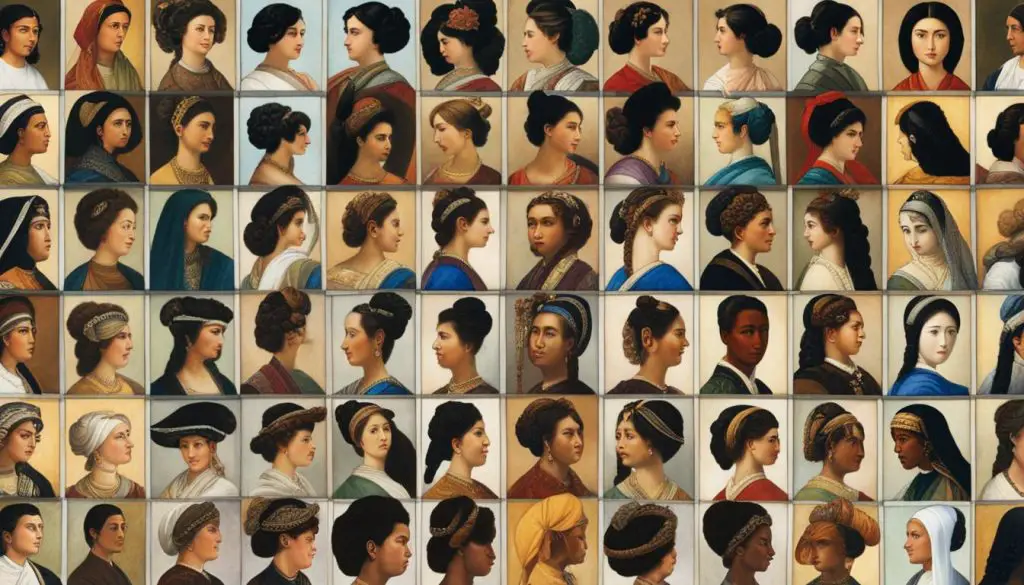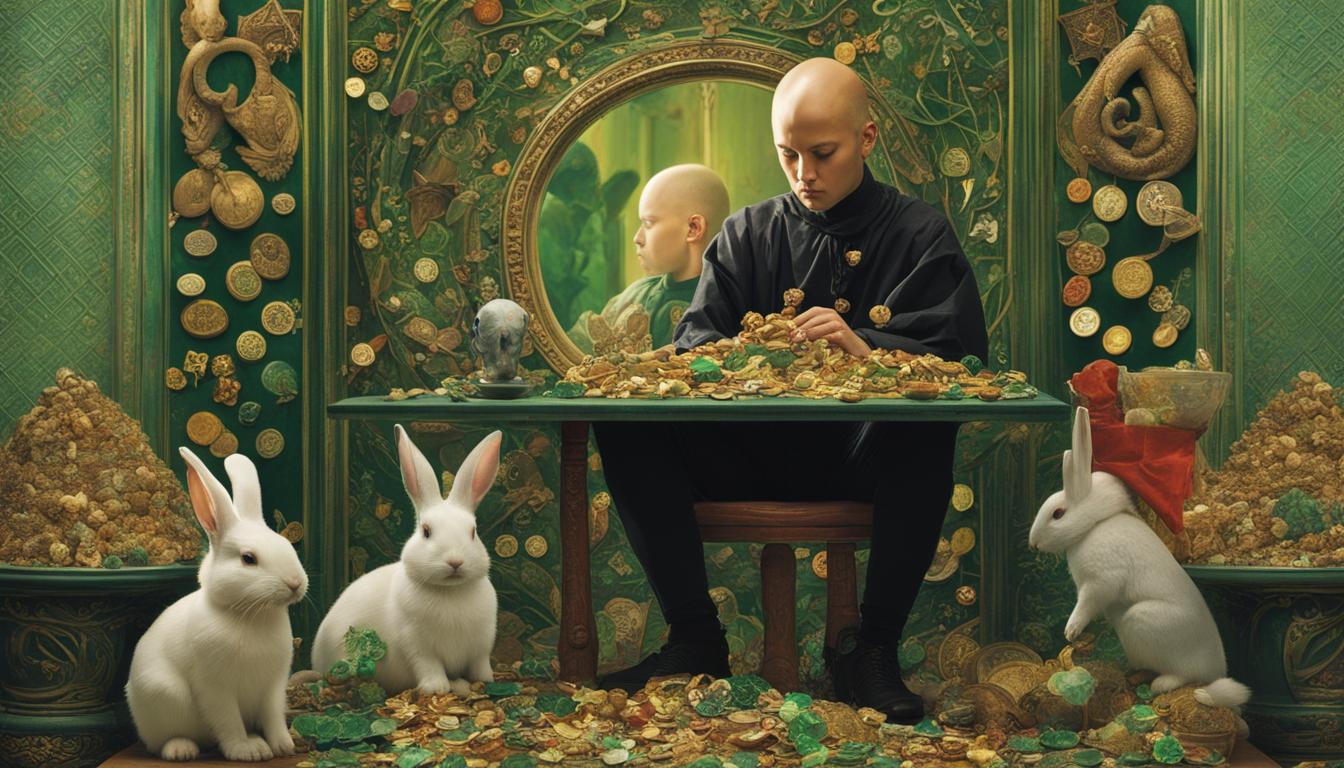Have you ever wondered if shaving your head could bring you good luck? It turns out that this belief is deeply rooted in various cultural and spiritual practices. Many people who engage in specific types of sadhana, or spiritual practices, believe that shaving their heads on certain auspicious days can channel energy towards spiritual growth. While this practice requires precautions to avoid imbalances in energy, when done with proper intention and support, shaving the head is considered beneficial for spiritual seekers.
Contents [hide]
- 1 The Cultural Significance of Shaved Heads
- 2 The Spiritual Connection to Shaved Heads
- 3 Historical and Cultural Beliefs about Hair
- 4 The Intersection of Belief and Modern Perspectives
- 5 FAQ
- 5.1 Why do people shave their heads for good luck?
- 5.2 What is the significance of shaving the head in Hindu traditions?
- 5.3 Why do temples in Tamil Nadu and Andhra Pradesh collect human hair?
- 5.4 Can shaving the head enhance spiritual experiences and abilities?
- 5.5 What is the historical significance of hair in various cultures?
- 5.6 Does shaving the head for good luck still hold meaning today?
- 6 Source Links
Key Takeaways:
- Shaving the head is believed to activate chakras and enhance spiritual experiences for dedicated spiritual seekers.
- Many cultures attach symbolic meaning to shaved heads, with tonsuring being a common ritual in Hindu traditions.
- Hair holds historical and cultural significance, symbolizing strength, power, and religious devotion in various civilizations.
- The belief in the good luck associated with shaving the head remains prevalent in certain cultural and spiritual traditions.
- Modern perspectives on the belief may vary, with some individuals finding personal significance in shaving their heads for luck.
The Cultural Significance of Shaved Heads
Shaving the head has been associated with various cultural beliefs and superstitions throughout history. In many Hindu traditions, the act of shaving the head, known as tonsuring, holds deep symbolic meaning. It is believed to be a form of sacrifice and offering one’s hair to the gods, which can bring blessings and fulfillment of wishes. This belief is so strong that temples in southern India collect tons of human hair every month as part of this ritual. This hair is then used in the hair trade industry, where Indian hair is highly valued for making wigs and extensions due to its texture resembling Caucasian hair.
“Hair has held symbolic significance throughout history and across cultures.”
Furthermore, shaving the head is not only rooted in religious practices but also carries cultural significance. In some societies, a shaved head may indicate a person’s commitment to a specific group or belief system. For example, in Buddhist cultures, novice monks shave their heads as a symbol of renunciation and dedication to their spiritual path. Similarly, in military institutions, soldiers may have their heads shaved as a sign of uniformity and discipline.
To illustrate the cultural beliefs about shaving the head for luck, let’s take a look at the following table:
| Culture | Belief |
|---|---|
| Hindu | Shaving the head as a form of sacrifice and offering to the gods brings blessings and fulfillment of wishes. |
| Buddhist | Novice monks shave their heads as a symbol of renunciation and dedication to their spiritual path. |
| Military | Shaving the head is a sign of uniformity and discipline among soldiers. |
As the table shows, various cultures attach different meanings to shaved heads, reflecting the diverse beliefs and customs that exist around the world.
In conclusion, the act of shaving the head carries cultural and symbolic significance in many societies. From religious rituals to personal commitments, the belief in the connection between shaved heads and luck is deeply rooted in cultural traditions. While some may see it as a superstitious practice, it is important to respect and understand the diverse beliefs and customs that shape our world.
The Spiritual Connection to Shaved Heads
For spiritual seekers who are deeply rooted in their physicality and seeking higher possibilities, shaving the head can be a way to activate the chakras above the physical body. It is believed that these activated chakras can enhance spiritual experiences and abilities. However, it is essential to have a strong foundation in physical practices, such as hatha yoga, to maintain balance and prevent the physical body from becoming too fragile. Shaving the head is considered a tool for spiritual seekers who are dedicated to becoming instruments of a larger possibility.
Shaving the head holds significance in various cultural and spiritual practices. People who engage in specific types of sadhana, or spiritual practices, believe that shaving the head on certain auspicious days can channel energy towards spiritual growth. There are precautions to be taken, as sudden removal of hair can lead to imbalances in energy. However, when done with proper intention and support, shaving the head is considered beneficial for spiritual seekers.
The Beliefs Behind Shaved Heads and Good Luck
Beliefs regarding shaved heads and good luck vary across cultures and spiritual traditions. Some believe that shaving the head can bring good fortune by removing negative energy and allowing positive energy to flow freely. Others view it as a symbolic act of surrendering one’s ego and attachments, creating space for new opportunities and blessings. Regardless of the specific belief, shaving the head is often associated with personal transformation, spiritual growth, and attracting positive energies.
Traditions of Shaving the Head for Luck
Throughout history, various traditions have incorporated head shaving as a way to invite good luck. In Hinduism, tonsuring, or shaving the head, is associated with offering one’s hair as a sacrifice to deities and seeking their divine blessings. Tonsuring is performed in temples and is believed to bring fulfillment of wishes and protection from negative influences. Similarly, in Buddhist cultures, monks and nuns shave their heads as a symbol of renunciation and spiritual devotion.
Moreover, some Native American tribes have specific rituals that involve shaving the head to mark important life events or transitions. These traditions emphasize the spiritual significance of letting go and starting anew. In each tradition, the act of shaving the head is deeply rooted in the belief that it can bring good luck, spiritual blessings, and a closer connection to the divine.
| The Spiritual Connection to Shaved Heads | The Beliefs Behind Shaved Heads and Good Luck | Traditions of Shaving the Head for Luck |
|---|---|---|
| Enhancing chakra activation and spiritual experiences | Removing negative energy and attracting positive energies | Ritualistic practices in Hinduism and Buddhism |
| Requires a strong foundation in physical practices | Symbolic act of surrendering ego and attachments | Native American traditions marking life events |
| Transformative and inviting new opportunities |
Historical and Cultural Beliefs about Hair
Throughout history and across cultures, hair has held significant symbolic meaning. Ancient civilizations such as the Incas, Aztecs, Egyptians, Greeks, Romans, and Vikings placed great importance on grooming and embellishing their hair. In these societies, hair was often associated with concepts of strength, power, and identity. For example, the biblical tale of Samson and Delilah portrays the belief that Samson’s hair held his spiritual power.
Furthermore, hair has been seen as a sign of spiritual power in Native American cultures. Many tribes believe that hair serves as an extension of the soul and that its removal can weaken an individual’s connection to the spiritual realm. In these cultures, hair is often left to grow long and is considered sacred, symbolizing a person’s connection to their ancestors and the natural world.
“Hair is your crowning glory. It represents who you are, where you come from, and what you believe in.”
– Native American proverb
The cultural beliefs surrounding hair extend beyond the spiritual realm. Different religious practices have also attached religious or devotional meanings to hair. In the Greek Orthodox Church, long hair is seen as a symbol of piety and modesty, with nuns often wearing their hair covered. Sikhism considers uncut hair, known as kesh, to be a sacred article of faith. It is believed that cutting one’s hair goes against the divine will and disturbs the natural balance.
| Historical Beliefs | Cultural Beliefs | Symbolic Meaning |
|---|---|---|
| Ancient civilizations placed great importance on grooming and embellishing hair | Native American cultures view hair as a connection to the spiritual realm | Hair symbolizes strength, power, identity, and spiritual connection |
| The biblical tale of Samson and Delilah portrays the belief that hair holds spiritual power | In the Greek Orthodox Church, long hair is seen as a symbol of piety and modesty | Uncut hair in Sikhism is a sacred article of faith, representing divine will and natural balance |
These historical and cultural beliefs about hair highlight the deep-rooted significance that it holds in human societies. Whether as a representation of identity, a connection to the spiritual realm, or a symbol of power and piety, hair continues to be an integral part of cultural and personal expression.

The Intersection of Belief and Modern Perspectives
The belief in shaving your head for good luck has deep roots in various cultural and spiritual traditions. However, it’s important to consider that the modern perspective on this practice may differ. While some individuals choose to shave their heads for perceived benefits, others may not believe it has any influence on luck or fortune.
Shaving your head for good luck is a personal decision influenced by cultural, spiritual, and individual beliefs. For some, it may hold personal significance and align with their spiritual journey. Others may see it as a symbolic gesture or a way to embrace change and transformation.
However, it’s essential to remember that luck and fortune are subjective concepts, and their outcomes are not solely determined by physical actions like shaving your head. The belief in the power of a shaved head should be understood in the context of the broader beliefs and practices associated with it.
Ultimately, whether you choose to shave your head for good luck or not, the most important aspect is to respect and honor your own beliefs and intentions. It’s about finding what resonates with you and embracing practices that align with your personal journey towards fulfillment and happiness.
FAQ
Why do people shave their heads for good luck?
Shaving the head is believed to bring good luck in various cultural and spiritual practices. It is thought to channel energy towards spiritual growth and can be a way to activate the chakras above the physical body.
What is the significance of shaving the head in Hindu traditions?
Shaving the head, or tonsuring, has symbolic meaning in Hindu traditions. It is associated with an ancient myth involving the god Vishnu, and offering one’s hair as a sacrifice is believed to bring blessings and fulfillment of wishes.
Why do temples in Tamil Nadu and Andhra Pradesh collect human hair?
Temples such as Tirutanni and Tirupati collect tons of human hair every month as part of the tonsuring ritual. The shaved hair is considered valuable in the hair trade industry, with Indian hair being highly sought after for making wigs and extensions.
Can shaving the head enhance spiritual experiences and abilities?
Shaving the head is believed to activate the chakras above the physical body, which can enhance spiritual experiences and abilities for spiritual seekers who are deeply rooted in their physicality and seeking higher possibilities.
What is the historical significance of hair in various cultures?
Hair has held symbolic significance throughout history and across cultures. It has been associated with concepts such as strength and power, and different religious practices have attached religious or devotional meanings to hair.
Does shaving the head for good luck still hold meaning today?
The belief in the good luck associated with shaving the head continues to be upheld in various traditions. However, the modern perspective on this belief may vary, and the personal significance of shaving one’s head for good luck depends on individual, cultural, and spiritual beliefs.





